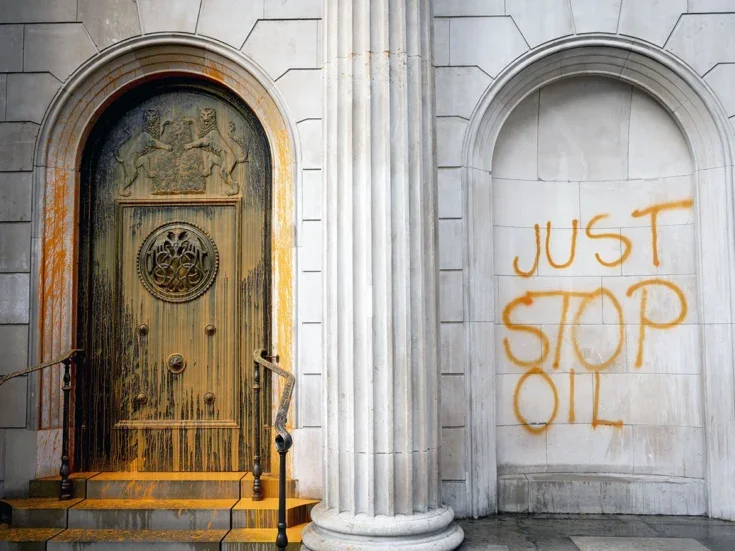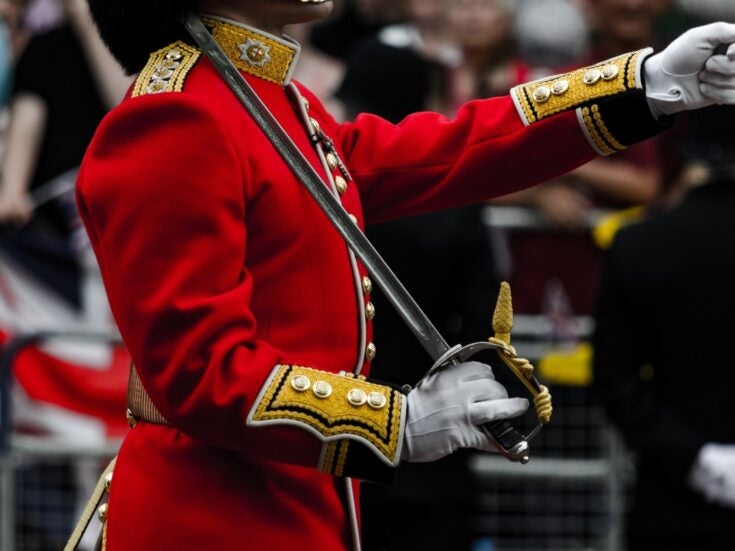Peer Steinbruck may be glorying in British troubles now, but we ought not to respond in kind – just think of our common history, says Rupert von Felsing
Peer Steinbruck may be glorying in British troubles now, but we ought not to respond in kind – just think of our common history, says Rupert von Felsing
The sight of Gordon Brown and David Cameron jousting at the Dispatch Box in the House of Commons whilst claiming the approval of the German Finance Minister for their economic policies is one that will stick in many minds for years to come.
Not because of the context, but simply because it would have been impossible only a short time ago to imagine any public person in Britain paying a German such a compliment as was paid to Herr Steinbruck. If one were to ask anyone in this country which international diplomatic relationship has most affected British politics throughout the last century, there no doubt that the answer would be that between Britain and the United States.
At times strained, as was most evident during the Suez and Falklands Crises of 1956 and 1982, it was overwhelmingly positive, as befits two nations that share not only a common language, but also a common heritage and democratic vision.
Alliances in two major global conflicts led to the coining of the phrase “special relationship” by Winston Churchill in 1946, a phrase that, although much hackneyed, is still relevant today as we observe members of both Armed Forces fighting side by side along the sandy banks of the Euphrates and in the mountain passes of the Hindu Kush.
Yet in fact the relationship that most dominates our daily lives is that between Britain and Germany, not only because of Germany’s dominant role in the European Union. A habitual target of the baying Red Tops, Germany and the Germans are also in journalistic terms what the Irish were for many years in smoky comedy clubs across Britain, the butt of jokes, innuendo and thinly-disguised disdain.
This is most apparent of course when our own fortunes are riding high. We tend to distract from our own deficiencies as a nation by pointing our fingers at others: but when we are laid low, as we are now, our attempts at pillorying others evidently more comfortable than us fall rather more flat.
The question is why is Germany our favourite country to hate? Surely France would be far more suited, after centuries of conflict and poor plumbing, to our purposes? Germany and Britain share a common history that France and Britain never can, in spite of Henry VI having been crowned King of France in 1420.
The Angles and Saxons, who together with the Jutes were immigrants to our shores in the post-Roman vacuum at the beginning of the 5th Century and formed our dominant Anglo-Saxon heritage, were overwhelmingly German. We have been allies longer and in more conflicts than we have been enemies, something that cannot be said for the French.
Yes, the French have imbued our culture by sending us the Normans in 1066 (although technically the Normans were pretty much Norwegian Vikings, having settled in Normandy under their leader Rollo only in 911), but the centuries since then have been marked by cross-channel competition and enmity, not alliance and friendship.
Our attitude towards Germany is naturally influenced by our memory of two terrible global conflicts, the blame for one of which at least has to be laid at Germany’s door. The cause of the First World War may be attributed to a mass hubris that affected most of the ruling classes across Europe and which, once the spark had been ignited, led us inexorably to conflict, where the price was as ever paid by ordinary Tommies and Landser.
The blame for the Second World War however can be laid at the door of the Germans, fair and square. It was German forces that crossed the Polish border in September 1939, confident in the fact that the Western Powers would betray Poland just as they had Czechoslovakia the year before.
And so the legend of the German beast was born, one that needed to be contained, a legend which bred a propaganda war on a hitherto unseen level, and which has continued to affect our view of the Germans ever since.
Yet in spite of these two conflicts and their emotional aftermath the long-standing similarities remain: the link between our royal families is well documented – the Kingdoms of Hanover and Great Britain were unified between 1714 and 1901, and as a result the level of intermarriage between both countries’ upper middle class and aristocratic families was also significant.
Trade was strong, and so it was cousins who faced each other across the bleakness of no man’s land at the Somme and the lush Bocage of Normandy 25 years later. As a result our view of Germany and the Germans, whilst coloured by conflict, must be now defined by something else.
It can only be this: we see them as our goody-goody cousin, the one who always scored top marks at school whilst we languished in the back row getting Ponsonby Minor to write our essays, the sportsman who diligently trained for the school rowing team whilst we, who were too lazy to get up early, contented ourselves with the thirds and bragged about it.
They were the one who had his first car whilst we were spending our student grants on our first frantic pints down at the local pub. And as such they are the cousin we needed to denigrate in order to feel better about ourselves.
Above all we find it hard to accept that a country so systematically destroyed and in ruins in 1945 managed, within 30 years, to emerge as the industrial powerhouse of Europe. Even in 2006 German GDP was 33% higher than the United Kingdom on a per capita basis. The foundations for that were laid early, even in the way they approached the destruction of war itself.
In Britain bomb sites scarred our cities for decades after the conflict was over, whereas in Germany teams of war veterans, cripples, women and children, set about going through the rubble as soon as the conflict had ended, sorting bricks into usable and unusable ones, piling them neatly within the ruins for future collection.
The Germans learned from their nadir, used that feeling of rebirth to craft a nation that never again would bring death and destruction to the world, one that sought to influence through industry and culture and not through force of arms.
It was once said that Britain and Germany would never see eye to eye, seeing as most of Britain’s achievements lay before 1945 and most of Germany’s after. Whilst a crass overstatement and oversimplification (what of Kant, Goethe and Beethoven? What of the Beatles, Stoppard, Betjeman and others?), there is a nugget of truth. So maybe it is envy that drives us, maybe we are above that, but what is indisputable is that the Germans, with their characteristic thoroughness and work ethic, have achieved something we have not.
They, taking stock whilst surveying their razed country in 1945, were able to define themselves anew, both in terms of their contribution to the global landscape, but also in terms of who they were and who they wanted to be. They had a plan.
We, on the other hand, were dealt a far different set of cards, on the surface better, but actually far worse. We were ruined but not in ruins. We had no blank sheet of paper to work from. We had the expectations of victory to fulfill with no money to do it: we had promised Homes for Heroes and a National Health Service but no means to do it.
Unlike us, the Germans had no expectations, they were happy to survive. But above all we were left with an Empire, crippled with debt and division, that we were loath to give up after all the sacrifice, but that slowly yet surely slipped from our grasp: a slow lingering demise as opposed to Germany’s short sharp annihilation.
And so we kept up appearances, retained the trappings of Empire, the ceremony, the Last Night of the Proms, and the feeling that the world owed us a living for evermore in return for our having held out in 1940 against the overwhelming might of Nazi Germany.
And so we failed to invest in infrastructure where the Germans used the Marshall Plan to rebuild theirs more efficiently, we set up a National Health Service that, whilst commendable, quickly became a utopian concept, and we allowed our industry, once the envy of the world as the cradle of the Industrial Revolution, to wilt and wither.
We failed to invest in our regions whilst Germany set up a Federal system which ensure wealth was spread around the country, and so we allowed London to flourish, a Charybdis that sucked in talent and money from the regions and created a South East divorced from the rest of the nation.
So maybe we are right to envy the Germans. Of course the country is not without its fault, no country is. It suffers from industrial unrest, social envy and racial tension, with the recent rise of neo-Nazi parties in the poorer east of the country, the Neue Bundeslaender, being a troubling development.
Yet all this is part of the democratic process, safe in the knowledge that the individual’s rights and those of minorities are protected by a political system that is enshrined in a Basic Law and watched over by a benevolent state.
A German once told me the story that he had once come to England to buy the outfit of an English Gentleman. He visited the very best Savile Row tailors and emerged 12 weeks later fully equipped for every social eventuality, only to be invited shooting shortly thereafter. He gladly accepted, knowing that he would now fit in effortlessly.
But imagine his consternation when he arrived and saw that his fellow shots were wearing clothes that were, well, so very old. When asked politely they confirmed that their outfit had indeed belonged to their father/grandfather/uncle. But what made him blanche was the realisation that in spite of this, the worn elbows and patched material, they all looked, well, so much better than he did.
And it was then that he came to the conclusion that the quintessence of being British is not in the ostentatious display of wealth, but in the style with which poverty is borne.
Whilst that trait seems to have been lost, maybe the current credit crunch is actually just what we need to rediscover this trait. For the true character of the Briton emerges when the chips are down: not for nothing we are taught that the greatest British military feats were born of defeat, and that British soldiers are invincible when their backs are against the wall, becoming snarling animals.
But give them victory, and they became fat and indolent. So if this financial crisis is a test of our mettle, maybe it is the best thing that could have happened to us as a nation.
The author is a former private banker with Deutsche Bank








